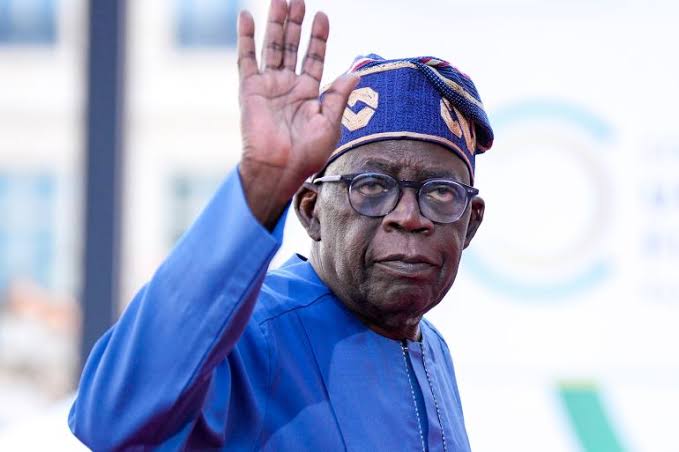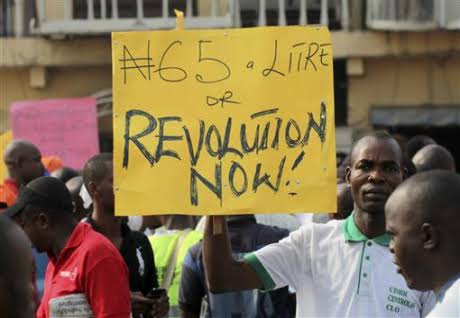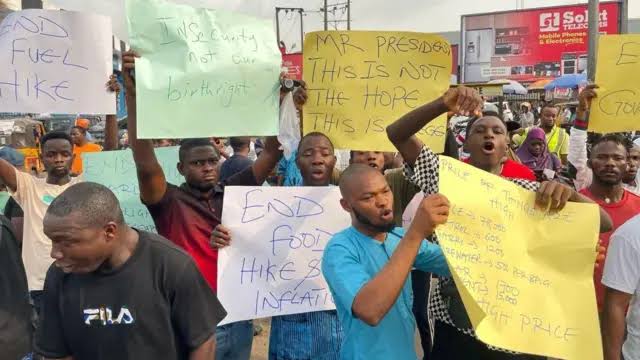In a significant twist of political irony, Nigeria’s current President, Bola Tinubu, once a fervent critic of economic policies under former President Goodluck Jonathan, now faces even graver economic issues during his tenure.

Back in 2012, Bola Tinubu was a key figure in galvanizing public outrage against Jonathan’s administration, primarily over the removal of fuel subsidies and the resulting inflation. This culminated in the widespread #OccupyNigeria protests, where Nigerians from all walks of life demanded economic justice and a halt to the fuel price hikes [❞] [❞].

During Jonathan’s tenure, the removal of fuel subsidies led to a significant increase in fuel prices, triggering nationwide protests. Bola Tinubu, along with other prominent figures, argued that the subsidy removal was a gross injustice to Nigerians, citing corruption and economic mismanagement as core issues. The protests were marked by mass demonstrations and were widely supported across social media, where influencers and activists rallied under the banner of #OccupyNigeria [❞].

However, as Bola Tinubu ascended to the presidency, the economic challenges have only deepened. His administration has been marked by extreme inflation, a severe lack of jobs, and widespread starvation. Despite his previous stance against subsidy removal, Tinubu’s government has faced criticism for similar economic policies, exacerbating the financial strain on the average Nigerian. The removal of fuel subsidies under Tinubu has led to fuel prices soaring to unprecedented levels, far exceeding those during Jonathan’s era [❞] [❞].
Extreme Inflation and Economic Hardship Under Bola Tinubu’s Regime

Under Bola Tinubu’s leadership, Nigeria has witnessed extreme inflation, with the cost of living skyrocketing and essential goods becoming increasingly unaffordable. This economic downturn has been attributed to several factors, including policy decisions that have failed to address the root causes of inflation and economic instability. The situation has left many Nigerians struggling to make ends meet, with unemployment rates climbing and job opportunities dwindling [❞] [❞].
Lack of Jobs and Starvation: A Grim Reality
The current administration’s inability to create sustainable jobs has further compounded the economic woes. With a growing population and a stagnant job market, many Nigerians find themselves without employment prospects. This has led to increased poverty levels and, in severe cases, starvation, as families struggle to afford basic necessities. The stark contrast between Bola Tinubu’s promises of economic reform and the harsh reality faced by Nigerians today has not gone unnoticed [❞].
Reflecting on the Past: Lessons Unlearned
The irony of Tinubu’s presidency lies in the fact that the very issues he once vehemently opposed have now become hallmarks of his own administration. The protests he championed against Jonathan’s economic policies seem to echo in the current discontent among Nigerians facing even greater hardships. This situation highlights the complexities of governance and the challenges of addressing deep-seated economic issues effectively.
In conclusion, the economic challenges under President Tinubu’s regime have underscored a harsh irony in Nigerian politics. The man who once motivated Nigerians to protest against slight inflation now presides over an economy plagued by extreme inflation, job scarcity, and widespread hunger. This scenario serves as a stark reminder of the ongoing struggle for economic stability and justice in Nigeria.
For more news and updates visit gistme9ja.com














